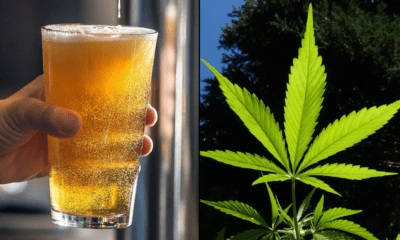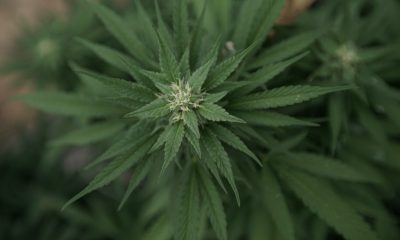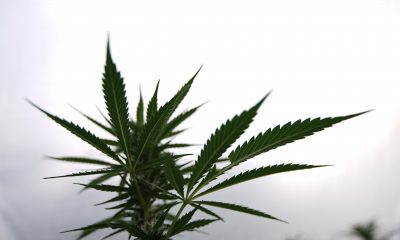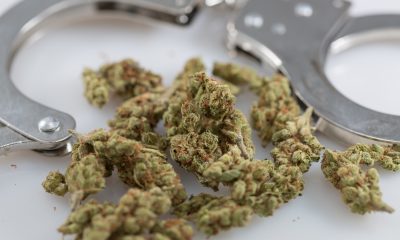Politics
USDA Got More Than 4,600 Hemp Comments Prior To This Week’s Deadline
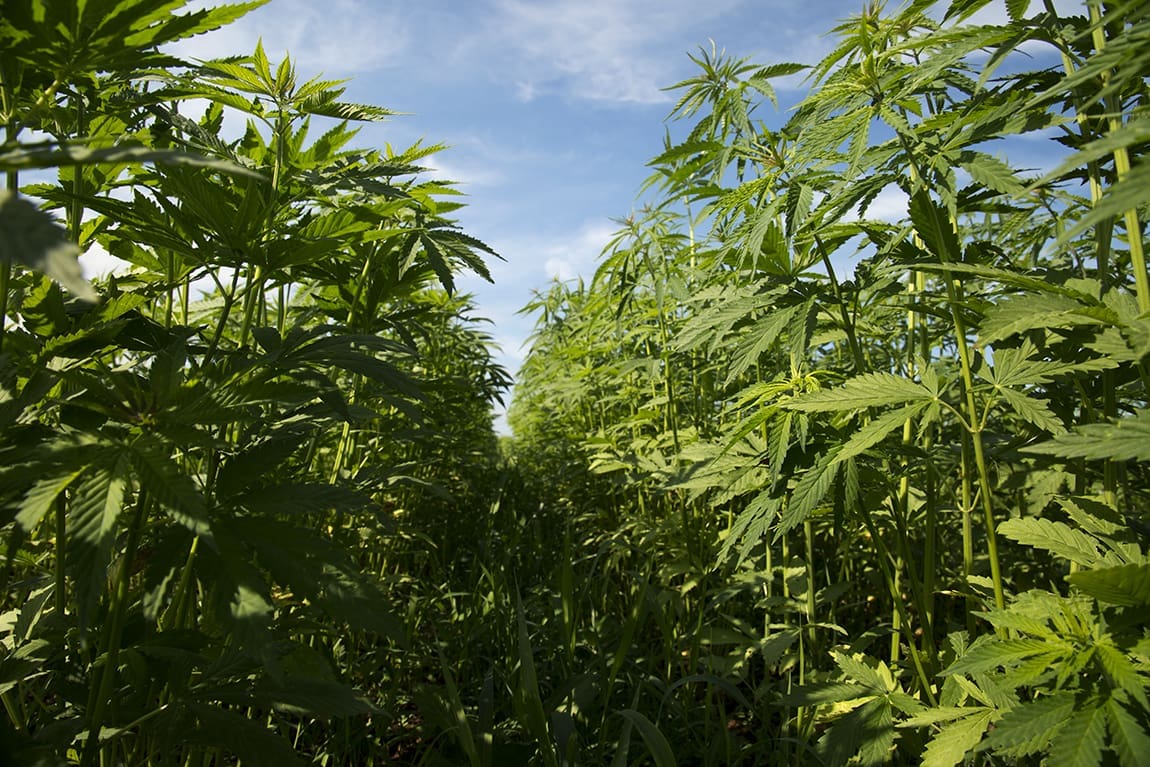
The deadline to submit comments to the U.S. Department of Agriculture (USDA) on proposed regulations for hemp was Wednesday—and advocates, stakeholders and lawmakers had a lot to say.
In the three months since USDA published an interim final rule for hemp, which was federally legalized under the 2018 Farm Bill, more than 4,600 individuals and organizations took the opportunity to weigh in, with many recommending certain revisions before rules for the crop are finalized.
On Wednesday alone, more than 1,000 comments were posted—a significant number considering that the public comment deadline was initially set for the end of last month until USDA extended it based on the volume of responses.
Here’s what lawmakers, stakeholders and advocates had to say about USDA’s proposed regulations:
While many celebrated the department’s commitment to quickly developing rules for the crop, there have been widespread, bipartisan concerns about select provisions that the industry and its supporters say could hamper its growth and create unnecessary burdens for farmers.
Several members of Congress, including entire congressional delegations representing Virginia, Maine, Colorado and Connecticut, have sent letters to USDA outlining requests for changes to the rules. Most inquiries identify the same specific concerns: 1) the negligence threshold for the allowable amount of THC is too low and doesn’t account for factors such as drought that can cause potency levels to spike, 2) the 15-day testing window before harvest is too short and 3) requiring testing to be conducted at Drug Enforcement Administration-licensed laboratories is onerous and will cause delays.
“Colorado continues to see tremendous growth in this industry and we are excited for the economic potential of this new crop,” the state’s congressional delegation wrote in a letter sent on Tuesday. “Therefore, it is critical the USDA establish a regulatory structure that allows our farmers to succeed.”
Colorado is a leader in every step of the hemp supply chain, maintaining a careful balance of regulatory oversight and economic support.
It is critical that the USDA establish a regulatory structure that allows our farmers to succeed. https://t.co/Isqausxc7l
— Rep. Joe Neguse (@RepJoeNeguse) January 30, 2020
“While the [interim final rule] begins to formulate a much needed regulatory structure, there are key provisions that are unnecessary, burdensome, and could hurt Colorado’s hemp industry,” they said.
The Connecticut congressional delegation made similar points in a letter sent to Agriculture Secretary Sonny Purdue on Wednesday.
As the @USDA continues to create a path forward for #hempfarming, I joined my colleagues from CT & @bryanhurlburt in sending a letter to @SecretarySonny advocating for a system that ensures farmers have the flexibility they need to enter the hemp industry. https://t.co/Pm7qUWa3Mq
— Rep. Joe Courtney (@RepJoeCourtney) January 30, 2020
“While [the proposed rules] help define the path forward for our farmers who wish to grow hemp, they contain a number of restrictive requirements that may prevent these very people from even taking advantage of the new agricultural opportunity,” the lawmakers said. “Our state’s hemp farmers want an opportunity to grow hemp, and have it treated the same as any other agricultural commodity. The rule as currently written assumes hemp is a controlled substance until it is proven otherwise.”
USDA also heard from Colorado Gov. Jared Polis (D) and the state’s attorney general and agriculture commissioner, who submitted comment on Wednesday identifying eight areas in the proposed rules that they argue need “modification.” Those areas include issues with regulations around sampling periods, lab certification requirements, THC thresholds and disposal protocol.
“As an early mover state in hemp, we understand the pivotal role a workable regulatory structure plays in allowing a new industry to flourish and we appreciate the hard work your staff has undertaken to construct a framework for states to operate their own hemp programs,” the letter, a hard copy of which was submitted on Colorado-grown hemp paper, states. “We understand that establishing a regulatory framework is a difficult task and we appreciate your willingness to consider the alternative approaches to regulating hemp as well as the legal issues set forth in this document.”
In a press release, Polis said “Colorado is the top state for hemp production, and we are proud of our work to increase good jobs and honored to help the Department of Agriculture figure out what we already know about hemp in Colorado.”
“We want to unleash this industry to grow and innovate. The proposed interim final rule, as currently written, does not support best practices in hemp production at a critical time in the development of this important industry,” he said. “The recommended changes we’ve put forward will support the hemp industry while establishing appropriate guidelines.”
The advocacy group Vote Hemp sent its comments on Wednesday, stating that it “believes the USDA has taken steps in the right direction in drafting the [interim final rule], however certain provisions do raise serious concerns for our stakeholders, hemp producers, processors and manufacturers.”
The negligence threshold, sampling protocol, testing and disposal requirements and laboratory restrictions were among the group’s chief concerns.
“We appreciate that the Agency also wants to get feedback after the 2020 growing season,” Vote Hemp said, adding that it recommends that USDA hold “another comment period in the 2nd half of 2021 and issue a final rule in the fall of 2021 after having more time to see how the new [interim final rule] has been working.”
“We sincerely appreciate your consideration of these comments and look forward to working with the Agency to ensure a strong and successful hemp industry,” the group said.
On Monday, Vermont’s agriculture department submitted comments to USDA, expressing similar concerns about the regulations.
Again, the top problems the state agency identified concern the THC threshold, sampling protocol and laboratory certification requirements.
“We believe our suggestions will improve the hemp program making it better for small growers while creating more opportunities for those making a living from hemp,” Vermont Agriculture Secretary Anson Tebbetts said in a press release. “I hope the USDA will consider providing States with the necessary flexibility to be able regulate hemp production while providing Vermont farmers with greater certainty and less risk.”
Michigan’s agriculture department said in comments submitted Wednesday that it “looks forward to working with USDA to develop and implement a strong industrial hemp program that’s compliant with the intent of the Hemp Farming Act of 2018 and is economically viable for Michigan hemp growers and processors.
The letter focused primarily on the THC threshold, with the department arguing that the “regulatory fear that hemp could potentially exceed a 0.3 percent concentration of THC and the unfair suspicion that it will be grown and used for illicit purposes must be balanced with the reality that all but three states have legalized Cannabis sativa L in at least some form or fashion.”
“Throughout North America, the combined legality of hemp at the federal level, and marijuana at the state level, has resulted in many positive outcomes including, but not limited to, new business opportunities, job creation, increased state sales tax revenue, and improved quality of life,” the letter states. “These positive outcomes far outweigh the perceived negative consequences of growing hemp that marginally exceeds 0.3 percent.”
The National Association of State Departments of Agriculture (NASDA) sent in its comments on Tuesday, reiterating that the proposed testing window is too short, the THC threshold is too low and the laboratory requirements are unnecessary, among other concerns.
“On behalf of NASDA state and territorial members, we are grateful for your dedicated work in establishing a federal program that facilitates the growth of a promising new industry while accommodating the diverse needs and challenges of farmers across our country,” the organization wrote. “Given their own diverse resources and challenges, our members will benefit from greater clarity from USDA in meeting the requirements of the 2018 Farm Bill. We ask that you incorporate these concerns, as well as the feedback from our individual members, as you advance a final rule.”
Outside of the practical, agriculture-specific provisions, others have raised questions about finance implications. The American Bankers Association (ABA) said in comments submitted Wednesday that it sees three possible problems with the interim final rule.
In a letter sent today to the @USDA, ABA recommended several changes to an interim final rule that would facilitate banks offering services to hemp growers and hemp-related businesses. Read the letter: https://t.co/ZhIiMGeK3U
— American Bankers Association (@ABABankers) January 29, 2020
Federal guidances stipulates that hemp businesses are entitled to financial services, but it requires them to be licensed—and currently, USDA’s rules only allow federal, state and local enforcement officials to access the licensing database, so ABA wants to expand access to banks. ABA also said licenses should be able to be automatically renewed to avoid uncertainty. Finally, it is seeking clarification on what happens to licenses when “unanticipated events, such as a death or illness, occur between planting and harvesting.”
“ABA appreciates the opportunity to comment on the USDA interim final rule on domestic hemp production. We believe that, with important changes to the rule, farmers will be encouraged to consider a crop which has a great deal of promise for a variety of uses, including clothing, construction, and as a replacement for plastics,” the letter concludes. “However, some of the practical limitations, as discussed above, must be addressed to ensure that risks are appropriately mitigated and that farmers and their lenders feel comfortable supporting this industry.”
Of course, these comments represent just a small fraction of the more than 4,600 that have been submitted. Many individuals engaged in the hemp industry also shared their thoughts and concerns, though many echoed the same points about excess restrictions and requirements.
“Enforcing these regulations will be impossible to uphold and will create an extra stress on farmers who already have so many variables to contend with in a new emerging industry,” one commenter wrote. “Free the industry, move out of the small farmers way. Stop favoring large corporate interest.”
Another person wrote that the “0.3 percent THC requirements are not founded in any science and just downright silly.”
“These strict requirements will do nothing but hurt the farmers as well as the end product that is produced,” they said. “I recommend at least a 1 percent THC threshold, which would allow farmers to focus on producing quality CBD biomass without the added worry of losing everything because of a meaningless percentage.”
A commenter based in Kentucky expressed frustration over the rule’s proposed 10-year ban on participation in the hemp industry by certain people with prior felony drug convictions.
“I believe that it is hypocritical, and cruel to restrict these persons from the hemp/cannabis industry,” the comment states. “We love our neighbors and family members—we need them to have every opportunity to get their lives back. Judicial consequences have failed tremendously in the war on drugs.”
It remains to be seen how much stock USDA will put into the public comments, but in any case, it’s clear that not only is interest in the regulations strong and widespread, but recommendations on changes are largely consistent.
This story has been updated to include comments from the Colorado congressional delegation.
Pro-Legalization Group Ranks Best And Worst Governors On Marijuana
Photo courtesy of Brendan Cleak.




